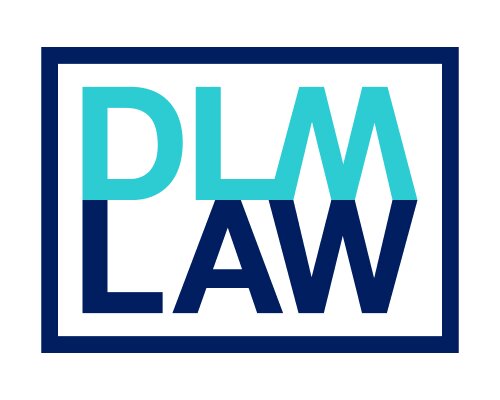Best Intellectual Property Lawyers in Kansas City
Share your needs with us, get contacted by law firms.
Free. Takes 2 min.
List of the best lawyers in Kansas City, United States
United States Intellectual Property Legal Questions answered by Lawyers
Browse our 1 legal question about Intellectual Property in United States and read the lawyer answers, or ask your own questions for free.
- Intellectual property
- Someone in india is using my children's photos on a court case that I have nothing to do with
-
Lawyer answer by Ahire & Associates
You can file a complaint with the cyber cell of the police department if the photos were obtained or used in a manner that violates privacy laws. The Information Technology (IT) Act, 2000, includes provisions for the protection of privacy.Please...
Read full answer
About Intellectual Property Law in Kansas City, United States
Intellectual Property (IP) refers to creations of the mind, such as inventions, literary and artistic works, designs, symbols, names, and images used in commerce. IP law in Kansas City, United States aims to protect these intangible assets by granting exclusive rights to the creators or owners. This legal framework helps foster innovation and creativity by providing incentives for individuals and businesses to invest time and resources into developing new ideas.
Why You May Need a Lawyer
There are several situations where you may require legal assistance in the field of Intellectual Property. Some common reasons include:
- Filing for patents, trademarks, or copyrights
- Protecting your IP rights from infringement
- Negotiating licensing agreements
- Resolving disputes over ownership or use of IP
Local Laws Overview
Key aspects of local laws in Kansas City that are particularly relevant to Intellectual Property include:
- The United States Patent and Trademark Office (USPTO) oversees the registration and protection of patents and trademarks
- The Copyright Office manages the registration and protection of copyrights
- Kansas City has its own court system where IP disputes can be litigated
Frequently Asked Questions
1. What is the difference between a patent, a trademark, and a copyright?
A patent protects inventions and processes, a trademark protects logos and brand names, and a copyright protects artistic and literary works.
2. How do I file for a patent, trademark, or copyright in Kansas City?
You can file for a patent with the USPTO, a trademark with the USPTO, and a copyright with the Copyright Office.
3. What rights does IP protection grant me?
IP protection grants the creator or owner exclusive rights to use, reproduce, and distribute their creations.
4. What should I do if someone is infringing on my IP rights?
You should consult with a lawyer to determine the best course of action, which may include sending a cease and desist letter or filing a lawsuit.
5. How long does IP protection last?
Patents typically last 20 years, trademarks can be renewed indefinitely, and copyrights last for the life of the author plus 70 years.
6. Can I license my IP rights to others?
Yes, you can license your IP rights to others for a fee or royalty.
7. What is the difference between a trade secret and a patent?
A trade secret is confidential information that gives a business a competitive advantage, while a patent is a publicly disclosed invention that grants exclusive rights.
8. Can I protect my IP internationally?
Yes, you can apply for international protection through treaties and agreements such as the Paris Convention and the WIPO.
9. What is the cost of obtaining IP protection?
The cost varies depending on the type of protection and the complexity of the application process.
10. How can I enforce my IP rights in Kansas City?
You can enforce your IP rights through civil litigation in the local court system or through alternative dispute resolution methods such as mediation or arbitration.
Additional Resources
For more information on Intellectual Property in Kansas City, you can visit the USPTO website, the Copyright Office website, or consult with local law firms specializing in IP law.
Next Steps
If you require legal assistance in Intellectual Property matters in Kansas City, it is recommended to schedule a consultation with a qualified IP lawyer who can assess your situation and provide tailored advice and representation.
Lawzana helps you find the best lawyers and law firms in Kansas City through a curated and pre-screened list of qualified legal professionals. Our platform offers rankings and detailed profiles of attorneys and law firms, allowing you to compare based on practice areas, including Intellectual Property, experience, and client feedback.
Each profile includes a description of the firm's areas of practice, client reviews, team members and partners, year of establishment, spoken languages, office locations, contact information, social media presence, and any published articles or resources. Most firms on our platform speak English and are experienced in both local and international legal matters.
Get a quote from top-rated law firms in Kansas City, United States — quickly, securely, and without unnecessary hassle.
Disclaimer:
The information provided on this page is for general informational purposes only and does not constitute legal advice. While we strive to ensure the accuracy and relevance of the content, legal information may change over time, and interpretations of the law can vary. You should always consult with a qualified legal professional for advice specific to your situation.
We disclaim all liability for actions taken or not taken based on the content of this page. If you believe any information is incorrect or outdated, please contact us, and we will review and update it where appropriate.
Browse intellectual property law firms by service in Kansas City, United States
Kansas City, United States Attorneys in related practice areas.








